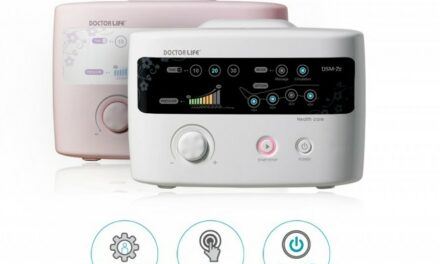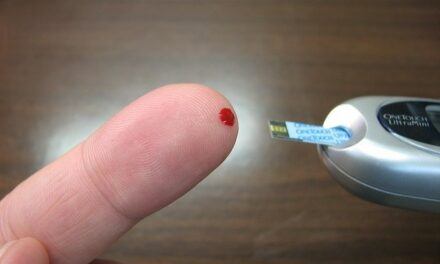Here we discuss Dementia-Friendly Clocks. What is a Dementia Friendly Clock? When to consider a Dementia Friendly Clock? When it’s too early to consider a Dementia Friendly Clock? And, what are the best Dementia Friendly Clocks are a few of the many questions we will be looking at here.
Let’s start…
Do you get upset or frustrated when your elderly loved one begins to constantly inquire what the time is or which day is it? Or are you worried about them constantly and not occasionally losing track of time, missing doctor’s appointments and even forgetting when to take their medication? It gets so bad that they even forget the dates of important events in their lives, such as birthdays and anniversaries.
Losing track of time and the inability to read the face of a clock as one usually does is one of the early signs of dementia. These can cause a lot of confusion and anxiety to our aged loved ones.
Luckily, there is a dementia clock, an important tool that can help your loved one keep track of time, to be more self-reliant and more confident.
Dementia clocks are available in different designs with different features. Depending on one’s choice, you can get them as analog or digital, portable or prominent, battery-operated, or powered by electricity.
Challenges Seniors Face With Date And Time?
One of the challenges seniors face as they begin to age is forgetfulness. This is becoming a growing concern as many seniors as they age begin to suffer from memory loss and confusion as a result of conditions like dementia or Alzheimer’s, Parkinson’s or a stroke, or just as a result of their advancing years.
This loss of memory may result in them having difficulty keeping track of time, forgetting important dates in their lives, such as their birthday, wedding anniversary, doctor’s appointments, and even when they are supposed to wake up, take their medication, or eat.
Some may also have difficulty reading the face of a clock, maybe as a result of age-related visual impairments such as glaucoma and night blindness.
The effectiveness and usability of a dementia clock depend on many factors…
Challenges People With Dementia Face With Date And Time?
Losing track of time, time of the day, dates, and season is one of the early signs of dementia which is easily overlooked or dismissed as a normal sign of aging.
When a loved one begins to forget important events in their lives such as birthdays and anniversaries, often confused and struggling to know what the time is, or when they cannot tell the difference between when it is day or night, then they may be showing an early sign of dementia.
As the condition progresses, the symptom worsens. This may make them to be confused about what they should be doing at a particular time or forget things as important as taking their medication or keeping their appointment with a doctor.
With such cognitive impairment, you may ask whether someone with dementia can even be able to read a clock and action. The answer is ‘yes’, ‘may be’ and ‘no’!
Can People With Dementia Read A Clock? Early-stage VS Later-stage Dementia?
There are 3 different stages of dementia – early-stage, mid and later stages of dementia.
The ability to read the clock is one of the tests used in diagnosing dementia. Losing track of dates and time is one of the early indicators of dementia.
And, as the disease progresses, this worsens as they begin to struggle or find it difficult to read and tell the time and confuse daytime and night. They may be looking at the clock face but may not be able to work out what the number means, or they may not be able to distinguish between day and night.
These are as a result of the decline in brain cognition caused by the disease. These get worst as the condition progresses and can result in confusion, agitation, and anxiety.
And, it is a very important factor to consider when picking a clock for your loved one who is suffering from dementia and facing the challenge of keeping track of time is the person’s stage of dementia.
Choosing the wrong type of clock for your aged loved one may not be of any benefit; instead, it may increase their confusion.
Here’s are the stages of dementia, in a bit more detail to help out your clock options.
- Early stages of dementia
People in the early stages of dementia may still be able to read a clock.
Getting them a large faced clock with clearly marked numbers or a digital clock that shows basic information such as time, day, month, and year or day/night clock will be ideal for them.
- Mid to later stages of dementia
For those at this stage, it may be not easy to read and understand a clock display.
Instead of a typical clock, people at this stage of dementia only need a day clock or a clock that states the part of the day they are in – morning, afternoon, evening or night.
A talking clock that provides a verbal reminder is also an ideal choice.
Now you know what’s the best way forward for your loved one… but, wait a second, are there really a special type of clocks available in the market designed especially for people with dementia, you may ask…
The definition of a dementia clock will help you understand.
What Is A Dementia Clock?
The dementia or Alzheimer clock is a clock designed specially to meet the needs of those with dementia.
It helps the elderly when their awareness of time decreases who are unable to use regular clocks effectively to be aware of time and date, thereby reducing the disorientation and anxiety associated with not knowing the time.
The dementia clock can also help to create structure and provide support to seniors who live independently.
Generally, Dementia clocks are designed to display information such as time, day, date, daypart and feature reminders in letters and numbers that a clear and highly visible.
Some models of dementia clocks are designed to feature add-ons such as large calendars, reminders, LED digital displays, and alarms to support activities such as waking up and taking medication.
Depending on the role of the clock and it’s design, there are many categories.
Let’s explore them now…
Types of Dementia Clocks
There are different types of dementia clocks, and they differ from each other in some ways. However, they perform the same basic functions.
Before purchasing a dementia clock, it is important to know the different types of dementia clocks and their features.
The different types of dementia clocks are:
- Day clocks
These are simple dementia clock that looks like most analog clocks, but the display may not tell or show the actual time but, show or tells you the day of the week, such as “Monday,” “Tuesday,” “Wednesday,” to Saturday.
Most day clocks are silent – no ticking, no chimes, or any strange sound and they are powered by an AA battery.
- Day/night clocks
These type of dementia clocks is designed for those who struggle to differentiate between day and night especially during the winter, when it’s dark at both 6 am and 6 pm.
These clocks clear up the confusion, as it displays the part of the day, i.e. morning, afternoon, evening or night with a background feature that changes depending on the time of day.
For example, the background may display a clear blue sky and a sun during the day, then change to a black or dark blue sky background with a moon and stars during the evening or night.
Unlike day clocks, the days of the week, the day/night clock also displays numbers to show the time of the day. The hour and minute hands are fashioned in such a way that they can be easily distinguished from each other.
The similarity it shares with the day clock is that the displays are clear and visible, this clock doesn’t make any sound, and the AA battery operated. And that is where the similarity ends.
- Digital clocks
Digital dementia clocks have large LCD displays that clearly show the current time in a digital clock format, then the day, date and day of the week.
They feature alarms that can be programmed to remind you or your loved one to carry out an activity or do tasks at a particular time of the day.
Just like most electronic devices, these clocks have options for adjusting the brightness and glare of the clock depending on what time of the day it is.
- Analogue Talking Clock
These clocks are designed for those with poor eyesight or blind individuals and dementia or Alzheimer patients that need to be constantly reminded of the time.
All they have to do is to press the button, and the day and the time of the day will be announced in a loud and clear voice.
It has a very clear contrast face that displays large bold numbers on a luminescent background.
This makes it easy for users who struggle to read traditional clocks to easily tell the time.
Aside from the button, one has to press, to listen for the day and time of the day; these clocks also feature an alarm and snooze button. A battery powers it.
Now let’s turn on the top dementia blocks you can by today…
5 Best Dementia Friendly Clocks
Do you need a clock for yourself or your aged loved one to help manage the confusion and anxiety that comes with losing track of time? Here are some of the best dementia clocks.
1. SVINZ 5 Alarm Dementia Clock
Description and Features
This incredible, well-built digital clock with extra-large digits display is perfect for your beloved elderly ones.
With the SVINZ dementia clock, your loved ones don’t have to struggle to read a clock because the digits displayed are bold and clear. The clock also displays the time of the day – morning (5:00 am –11:59am), afternoon (12:00pm – 4:59pm), evening (5:00pm – 8:59pm), night (9:00pm – 11:59pm) and predawn (12:00am – 4:59am).
It features;
- 8-inch high dimension display with three color display options (yellow, black and white)
- 5 programmable alarm functions. This is very helpful for setting alarms for important reminders
- It is also designed with a brightening and a dimming function, which is really amazing!
The clock brightens during the day from 7:00 am to 7:00 pm at night when it dims. This feature comes with the option of switching off the dimness and leaving the clock to be bright at all times
- A customizable display format. Using the menu button at the back of the clock, one can change the date and time format and even the language display option.
- Offer 8 language option
- Large and partition buttons for easy operation
- A large SNOOZE touch button on the top of the clock
- Electric adapter for powering the clock
Pros
- The packaging of this clock intentionally omitted the words – Dementia, Alzheimer, and memory loss to prevent any form of embarrassment and shame.
- Automatic brightness and dimness option that can be switched off
- 8 different language option
- Customizable display format
Cons
- No backup battery
2. American Lifetime Digital Clock
Description and Features
Looking for the latest digital clock for your visually impaired loved one? Then search no more! This is the clock.
This 8-inch high-resolution digital alarm clock displays not just the time but also the day of the week, time of the day, and date in a bold and clear format.
This clock can be placed on the table or hung on the wall. For greater contrast, the screen is black with the letters and numbers in white. The frame comes in different colors.
To use this clock, all you have to do is to plug it into the socket and set the time zone, and you are good to go!
This clock features;
- A backup battery system
- 5 daily programmable alarm function
- Automatic dimness function
The brightness of the clock dims from 7:00 pm to 7:00 am
- Hourly chime with daytime, on and off options
- 24 or 12- hour modes
- 8 language display option
- Easy to set scrolling menu button
Pros
- Large display
- Backup battery in case of a power outage
- Bold and clear digits
- No confusing abbreviation
- Sleek and beautiful frame available in different colours
- It comes with one year warranty
Cons
- It does not support automatic daylight savings
- No snoozing option
3. Robin Digital Day Clock
Description and Features
With a crystal clear 8-inch HD display and a 1700 viewing angle. This digital clock is a combination of day, time, calendar and talking clock. This clock is one of a kind.
It features;
- An easy-to-access side buttons
- Unlimited, customizable alarms and reminders with an adjustable volume, length and sound
- A dimness option that can be set for mid-day nap or nighttime.
- One-touch talking clock button. This announces the time and day in a loud and clear voice.
- A snooze button
- One-touch sleep button for undisturbed midday naps
- More than 20 preset events and more than 10 preset holiday options with custom messaging/notifications.
- 7 preset themes
- Equipped with a backup battery in case of a power outage
- Available in black, white, mint, lavender, sage, and tomato frame
Pros
- You can set as many reminders as you want.
- Supports an automatic daylight time saving that auto-reset for DST within any chosen region
- Offers a year warranty
Cons
- It is not a touchscreen, and setting it up using the up/down/left/right buttons and the QWERTY keyboard is tiresome
- You will need to place the clock near a power outlet
4. DaysClocks Days Of The Week – DayClock With Mahogany Wood Frame
Description and Features
Are you or any of your loved elderly ones losing track of the days of the week? That can be fixed with Daysclock days of the week wall clock.
This clock displays the current day of the week. Beautifully designed but easy-to-read wall clock.
The face of the clock is divided into seven equal segments. Each day of the week is written in full and accordingly in each of the segments.
The pointer points to the midline on each segment when it is midday and the line dividing the present day and the next day when it is midnight.
This clock is powered by only one AA battery, so you don’t have to worry about a power outage.
This clock features;
- A 10-inch mahogany wood octagonal frame
- A dome glass cover
- Midday and midnight markers
Pros
- Offers a 5-year warranty
Cons
- Has no table stand
- People with impaired vision may prefer a day clock with a bigger font
5. ORKA Talking Clock for Seniors

Description and Features
With this talking Madi digital clock, rest assured that you or your loved aged one will not forget important appointments and schedules.
It is designed for visually impaired seniors and those with dementia to increase their independence.
This large digital clock displays time in extra-large digits and the days of the week in full without any confusing abbreviations. This clock is powered by electricity. With loud adjustable volume and the option of choosing from 6 different languages, you can hear the time, day and date at the press of a button.
You can also listen to your schedule and reminders for the day by pressing the button. You can set up to 8 alarms and record the alarm messages in your own voice. The clock can be set to display in 12 or 24 hours.
This talking Madi clock features:
- Easy to use and control buttons
- A day and night time indicator
- Button for adjusting the brightness of the clock
- Button for adjusting the volume
- Flashing light display during alarm
- Alarm sounds for 30 minutes, ensuring you don’t miss any reminder
- A mute switch to put the messages in silence when you do not want to be disturbed
- A USB port to plug and charge your phone
- A backup battery to retain your settings and reminders when there is a power outage
- Option of talking Madi soft tune instead of the usual alarm tunes or your voice recording
Pros
- It comes with 1 year 100% satisfaction guaranteed, so you can get a full refund or replacement if you are not satisfied with the product within 1 year of purchase
- There is an extra-large digital display and a loud adjustable volume for those who are visually impaired
Cons
- DST setting is not available
- It does not display the date and month on the screen
Conclusion
Dementia causes memory loss which can impact on self-reliance, confidence and the competence of the person suffering from it. It can result in losing track of time, forgetting important events and schedules. These can be frustrating and depressing both to the patient and caregiver.
A dementia clock is a helpful tool that can help give structure and routine to the aged who cannot keep track of time or remember important appointments or activities they are supposed to carry out.
Dementia clocks are available in different designs with different features. You just need to choose what you think may work for you or your aged loved one.












